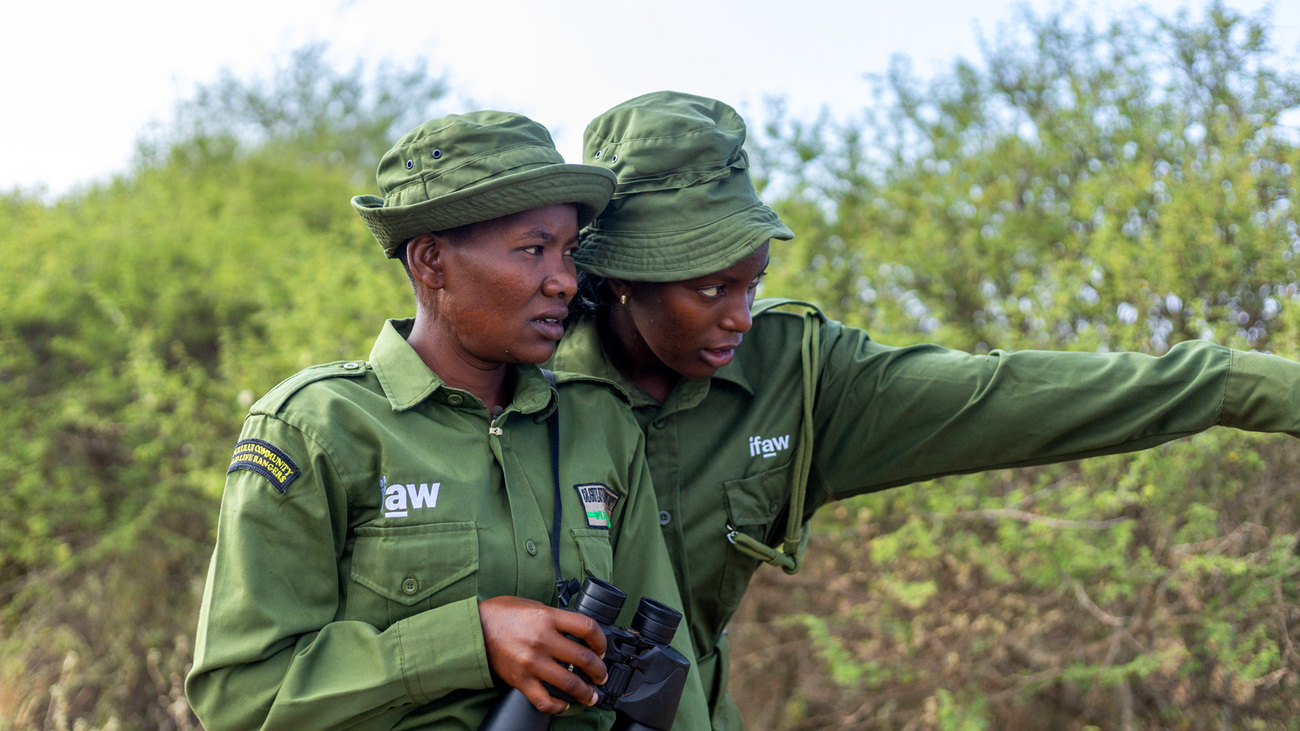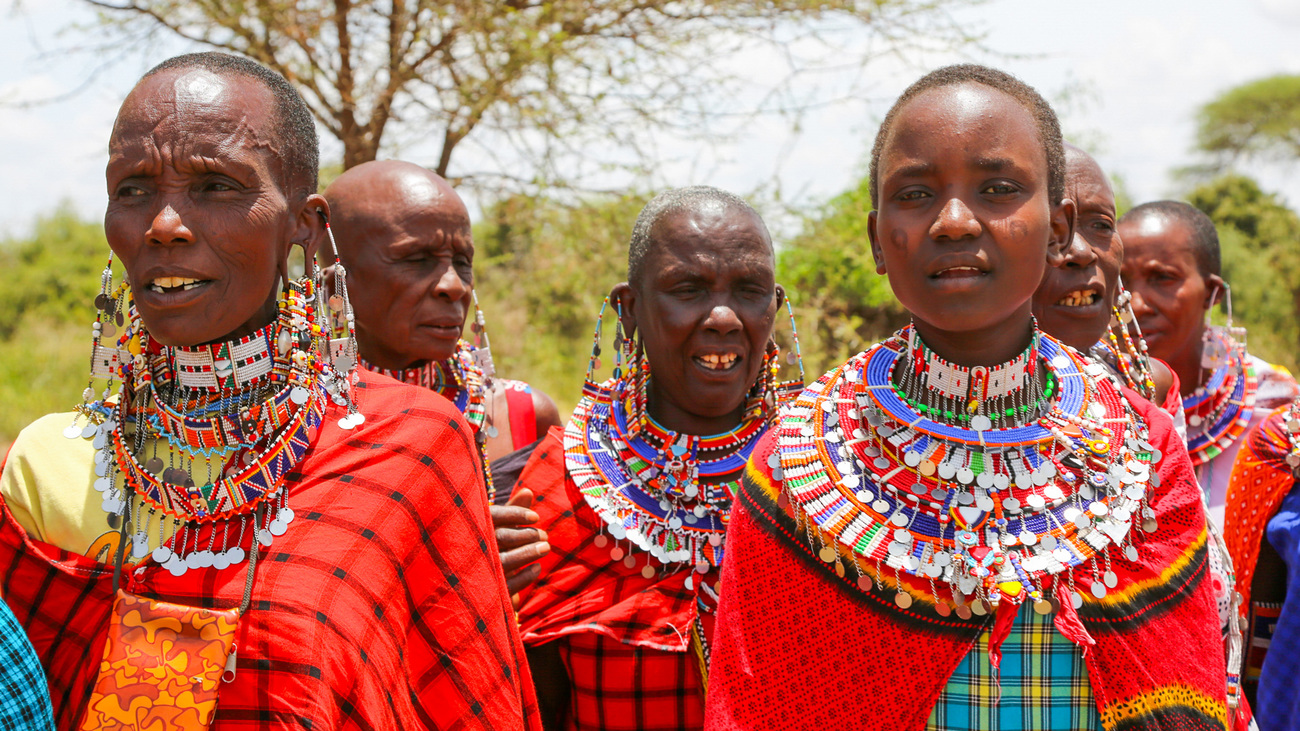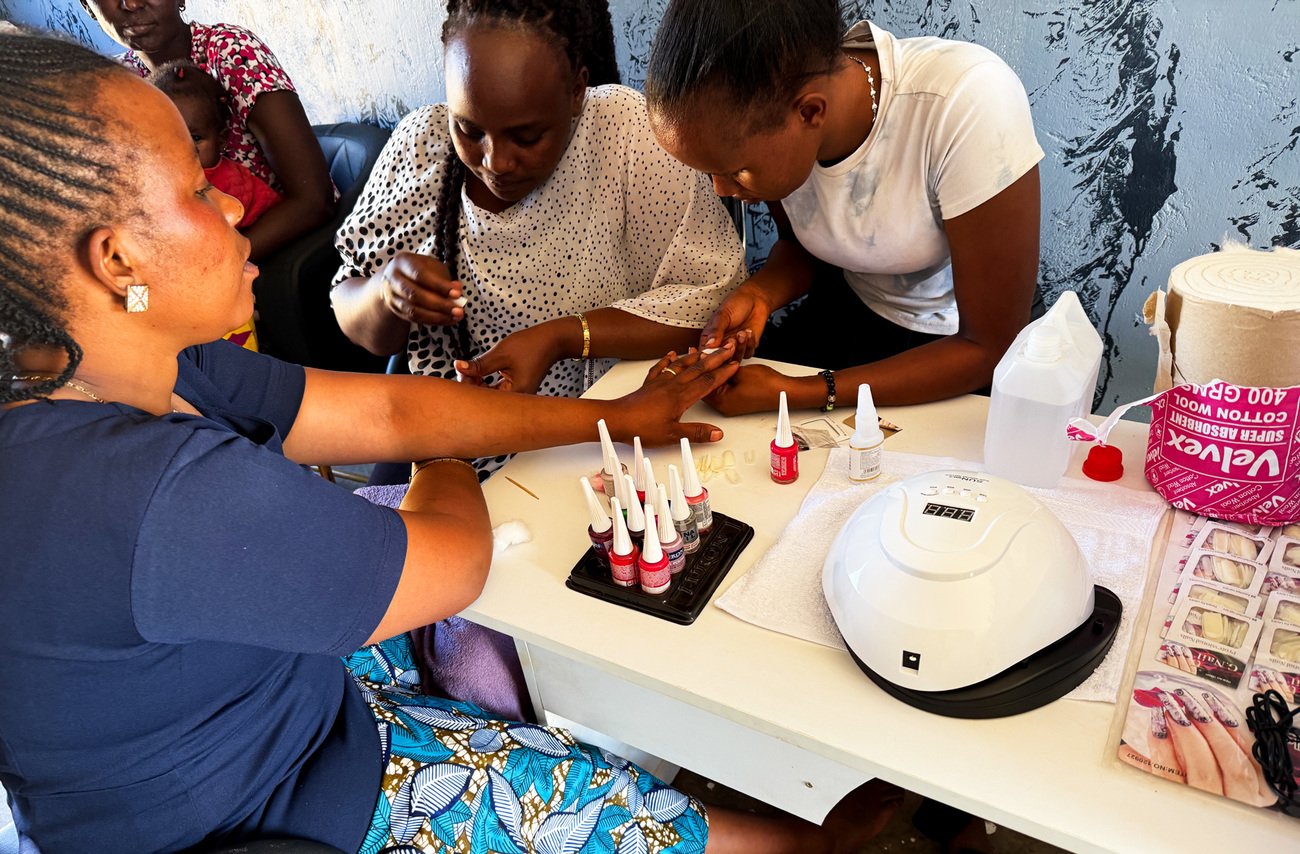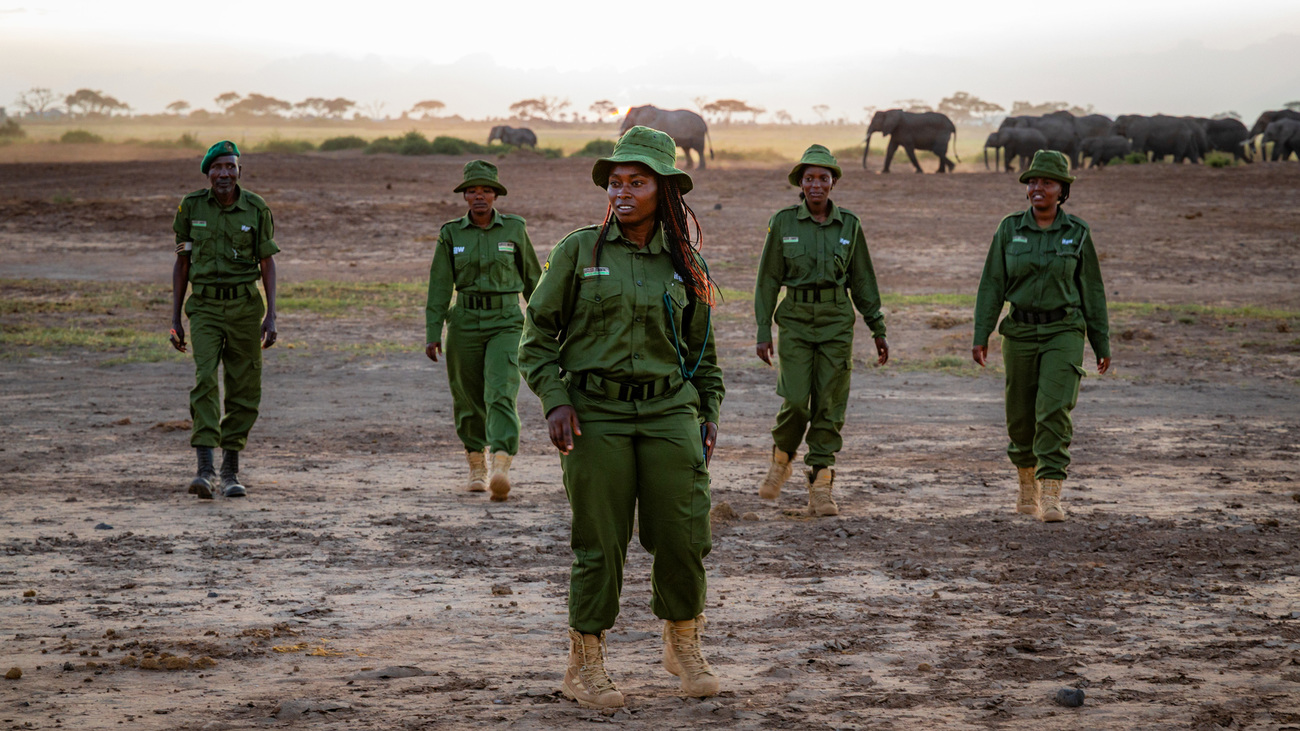Women working together for healthy ecosystems and communities
Women working together for healthy ecosystems and communities
by Daisy Ochiel, IFAW Gender & Youth Officer
Human-wildlife conflict, climate change, and environmental degradation disproportionately affect those living in rural areas, especially women. Their traditional roles as caregivers and homemakers not only place them within close vicinity and risk of wildlife attacks but are becoming more difficult to accomplish due to their reliance on natural resources. The rapidly changing climate, leading to severe and prolonged droughts, is decimating livestock and agriculture, making it more difficult for women to feed children, find water for domestic use, and gather firewood.

Unfortunately, in marginalized and pastoralist communities, which tend to live in close proximity to wildlife, women traditionally have little or no control over decisions on the use of land and livestock. They are essentially excluded from the traditional economy.
Naomi Wanja, a biodiversity and climate change coordinator with Taita Taveta Wildlife Conservancies Association (TTWCA—an IFAW partner organization—says this arises because land ownership is vested in men, and decisions over land utilization are tied to ownership.
Because of this, when communities organise decision-making forums at wildlife conservancies or wildlife-related economic enterprises, women and youth are poorly represented, if at all.
‘Women remain on the periphery of conversations that matter for conservation,’ Naomi explains. ‘This is unfortunate because the management of a critical resource such as land and the wildlife upon it requires diverse voices, an inclusive thought process, and all hands on deck.’
To help resolve this imbalance, IFAW is engaging communities that live near wildlife habitats, supporting the empowerment of women and youth to help them coexist with animals.
In Amboseli and Loita, these initiatives are helping to forge stronger and more resilient communities. Women’s grassroots efforts are helping to mitigate human-wildlife conflict, develop new sustainable sources of income, and reduce their communities’ reliance on natural resources.
Inua Kijiji
The Inua Kijiji (‘Uplift the Village’ in Swahili) project is about driving social and economic growth in the community through beading, a long-standing pastime for Maasai women.
By organizing women into groups, training them to improve product quality, and helping them access new markets, this project has earned women a degree of financial independence and made their families more adaptable to climate shocks.

Using proceeds from their beading work, women are installing energy-saving cookstoves, which are constructed in a way that ensures heat is not lost, or buying Liquefied Petroleum Gas (LPG) cookers, which are environmentally friendly as they do not use wood fuel. These appliances reduce tree felling for wood fuel in this fragile habitat and decrease the risk of encountering dangerous wild animals while gathering firewood.
Some women have also used income earned from beading and a group-owned commissary shop to buy livestock, construct modern housing, and pay the processing fee for individual ownership of land within the group ranch. This has elevated their position from dependents to contributing members of the community.
Jenga Mama
The Jenga Mama (Swahili for ‘Empower a Woman’) education project equips women to set up microenterprises to generate sustainable incomes for their families and communities.
By 2023, the project had provided resources for the training of 60 women in different vocational institutions, 10 of whom gained employment after graduation. Other beneficiaries have established 13 joint businesses in tailoring, hairdressing, plumbing, ICT, and catering, using start-up equipment donated by IFAW.

These young women, among them housewives who were supported by their husbands to go back to school, are role models for young girls and older women alike. They pay school fees for their siblings and children, cater for household bills, and provide a safety net for families in seasons of droughts and food insecurity.
Team Lioness
One of the first all-women ranger units in Kenya, Team Lioness, comprises 17 women, including two certified drone pilots and one driver, based in Olgulului, Amboseli. The women are part of a community conservation wildlife ranger unit that patrols the Maasai Olgulului–Ololarashi Group Ranch, a community-owned area of land that almost encircles the Amboseli National Park and shares a border with Tanzania.
Team Lioness ranger Purity Lakara, who grew up around wildlife in Amboseli, was intrigued by the men rangers she saw patrolling the park as a child. She remembers imagining what it would be like to be a ranger when she grew up.

‘I am thrilled that IFAW has made this dream come true,’ she says.
By working on the frontlines of wildlife protection, Team Lioness is breaking long-held traditional beliefs and barriers and setting new standards for women in this traditionally patriarchal community. It has encouraged discussions on women’s vulnerabilities, capabilities, and roles in ecosystem and wildlife protection.
‘We need to bring more women into conservation because they spend more time in the landscape than men,’ says IFAW Africa Director James Isiche. ‘They see and interact with wildlife daily, making them effective allies for monitoring wildlife movements for anti-poaching and human-wildlife conflict control. It is refreshing to see women play a critical role not just in their communities, but in the overall health of the planet.’
Related content
every problem has a solution, every solution needs support.
The problems we face are urgent, complicated, and resistant to change. Real solutions demand creativity, hard work, and involvement from people like you.